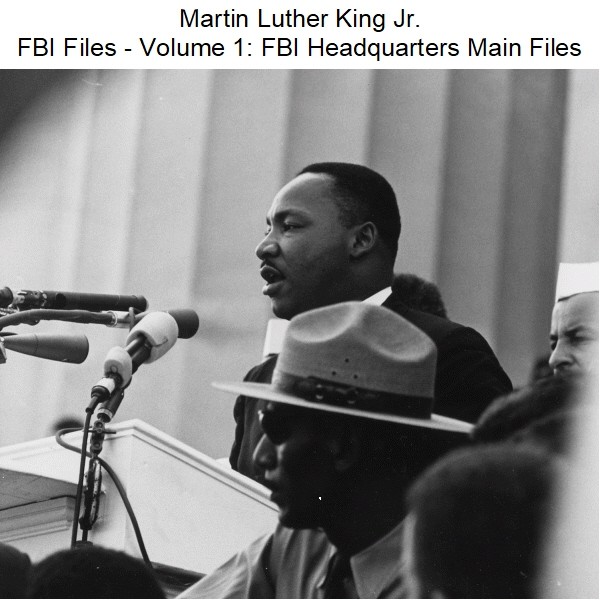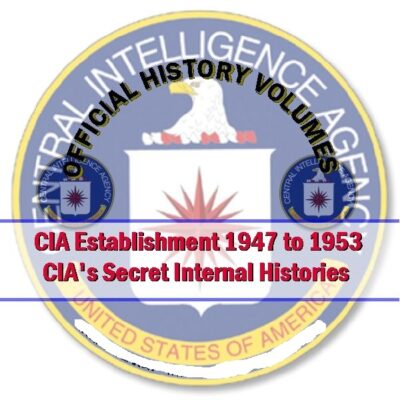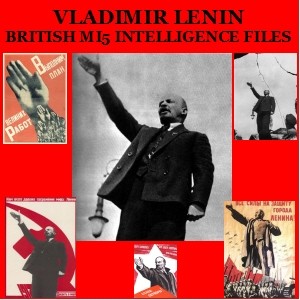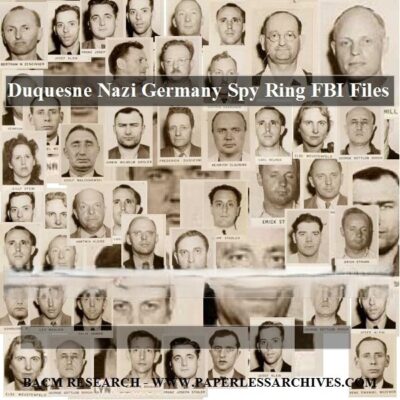
Martin Luther King Jr. FBI Files – Volume 1: FBI Headquarters Main Files
$19.50
Description
FBI Surveillance of Martin Luther King Jr.: Timeline and Key Figures
Timeline of Main Events (Based on FBI Files – Volume 1)
This timeline focuses on the events directly related to the FBI’s surveillance and investigation of Martin Luther King Jr. as described in the provided source.
- December 1955: The FBI begins monitoring Martin Luther King Jr. during his involvement in the Montgomery bus boycott. This marks the initial interest and surveillance of King by the Bureau.
- 1962 – 1977: The timeframe covered by the FBI files in Volume 1. This indicates the period of intense scrutiny and information gathering on King.
- Fall 1963: Attorney General Robert Kennedy expands the FBI’s surveillance of King to include wiretaps on his office and home telephones. This signifies a significant escalation in the intrusiveness of the surveillance.
- February 4, 1964: A memorandum from Baumgardner to Sullivan states the FBI’s aim to use information about the “private activities of Dr. King and his advisors” to “completely discredit” them. This reveals the underlying hostile intent behind the surveillance.
- April 1964: Martin Luther King Jr. publicly calls the FBI ‘‘completely ineffectual in resolving the continued mayhem and brutality inflicted upon the Negro in the deep South.’’ This public criticism significantly intensifies the animosity between King and FBI Director J. Edgar Hoover.
- November 1964: At a press conference, FBI Director J. Edgar Hoover calls Martin Luther King Jr. the “most notorious liar in the country.” This public statement highlights the deep personal animosity and the extent to which Hoover sought to damage King’s reputation.
- Mid-1960s (implied): The FBI, under its domestic counterintelligence program (COINTELPRO), subjects King to various forms of surveillance, leading to alleged evidence of extramarital affairs but no evidence of Communist membership. This illustrates the methods employed to gather potentially damaging personal information.
- Ongoing throughout the 1960s: The Justice Department and J. Edgar Hoover’s FBI direct heavy surveillance against King. Attorney General Robert Kennedy and Presidents John Kennedy and Lyndon Johnson are kept informed of King’s strategies and political plans as a result of this surveillance. This underscores the high-level awareness and utilization of the intelligence gathered.
- 1977: A federal court order mandates the removal of the “fruits” of electronic surveillance from the FBI’s files and their sealing in the National Archives until 2027. This legal action acknowledges the problematic nature of the surveillance and attempts to address privacy concerns.
- Post-April 1964 (implied): Following King’s criticism, FBI officials begin actively plotting ways to harm his public reputation and destroy his political influence. This marks a shift towards a more proactive and damaging approach by the FBI.
- Throughout the documented period: The FBI gathers information on various aspects of King’s life and work, including his involvement with the Southern Christian Leadership Conference (SCLC), his advisors (like Hunter Pitts O’Dell and Stanley Levison), his stance on issues like the Vietnam War, and events like the March from Selma to Montgomery and the Chicago Freedom Movement. This indicates the broad scope of the FBI’s intelligence gathering.
- Post-Martin Luther King Jr.’s Assassination: The FBI continues to hold files on King, dealing with topics such as reactions to his assassination, his funeral, and post-mortem slander. This shows the FBI’s continued involvement even after King’s death.
- Later Years (implied): The files include information related to the establishment of Martin Luther King Jr. Holiday Committees and marches commemorating his birthday and the anniversary of his death, suggesting the FBI monitored the public memory and legacy of King.
- Ongoing (up to the time of the file compilation): The files document FOIA requests, reviews of indices and files, and the involvement of Department of Justice Task Forces and Departmental Reviews related to the FBI’s King investigation. This points to the ongoing scrutiny and examination of the FBI’s actions.
Cast of Characters and Brief Bios
This list includes the principal individuals mentioned in the source in relation to the FBI’s surveillance of Martin Luther King Jr.
- Martin Luther King Jr.: (1929-1968) A central figure in the American Civil Rights Movement. A Baptist minister and activist, he advocated for racial equality through nonviolent civil disobedience. The FBI extensively monitored him from 1955 until and beyond his assassination due to suspicions of Communist influence and a desire to discredit him.
- J. Edgar Hoover: (1895-1972) The Director of the Federal Bureau of Investigation for nearly five decades. He held a strong personal animosity towards Martin Luther King Jr., believing him to be a Communist or influenced by Communists. Hoover directed the extensive surveillance and efforts to discredit King.
- Robert Kennedy: (1925-1968) Attorney General of the United States during the early 1960s. He authorized the expansion of surveillance on King, including the use of wiretaps on his home and office. He was kept informed of King’s strategies and plans through the FBI’s intelligence gathering.
- Lyndon B. Johnson: (1908-1973) President of the United States following John F. Kennedy’s assassination. He was also kept informed of Dr. King’s strategies and political plans based on the FBI’s surveillance.
- John F. Kennedy: (1917-1963) President of the United States prior to Lyndon B. Johnson. He was informed of Dr. King’s strategies and political plans through the FBI’s surveillance.
- Baumgardner: An FBI official who authored a February 4, 1964 memorandum outlining the FBI’s aim to discredit Martin Luther King Jr. and his advisors.
- Sullivan: Another FBI official to whom Baumgardner’s memorandum was addressed, indicating his involvement in the FBI’s efforts against King.
- Hunter Pitts O’Dell (Jack O’Dell): An advisor to Martin Luther King Jr. He was one of the individuals whose “private activities” the FBI sought to investigate and use to discredit King, likely due to suspicions of Communist ties.
- Stanley Levison: Another key advisor to Martin Luther King Jr. He was also a target of the FBI’s scrutiny and an individual whose association with King fueled suspicions within the Bureau.
- Clarence B. Jones: An advisor and speechwriter for Martin Luther King Jr. His activities would have been part of the broader surveillance efforts.
- James R. Hoffa: (1913-1975?) President of the International Brotherhood of Teamsters. His meeting with King was noted by the FBI, suggesting potential areas of interest for their investigation.
- Malcolm X Little: (1925-1965) A prominent figure in the Nation of Islam and later a Black nationalist leader. His interactions or relationship with King may have been of interest to the FBI.
- Andrew Young: A close aide to Martin Luther King Jr. and a leader in the Civil Rights Movement. His activities and association with King would have been monitored.
- Attorney General Katzenbach: Served as Attorney General after Robert Kennedy. He would have been aware of the ongoing surveillance and investigations related to civil rights leaders like King.
- Senator Strom Thurmond: (1902-2003) A segregationist Senator from South Carolina. His opposition to the Civil Rights Movement and King likely made any interactions or mentions of him relevant in the FBI files.
- C.T. Vivian: A prominent leader and strategist in the Civil Rights Movement, closely associated with King and the SCLC. His activities would have been under FBI scrutiny.
- Elijah Muhammad: (1897-1975) Leader of the Nation of Islam. The FBI’s interest in the Nation of Islam likely extended to any connections or interactions with King.
- Stokely Carmichael: (1941-1998) A leader in the Student Nonviolent Coordinating Committee (SNCC) and later a proponent of Black Power. His activities and any interactions with King would have been noted.
- Coretta King: (1927-2006) Martin Luther King Jr.’s wife and a civil rights activist in her own right. The FBI’s interest extended to the aftermath of King’s assassination and the public response, involving Coretta King.
- Cassius M. Clay (Muhammad Ali): (1942-2016) A world-renowned boxer and activist. His association with figures in the Civil Rights Movement, including King, likely drew the FBI’s attention.
- Dr. Benjamin Spock: (1903-1998) A pediatrician and author who became involved in anti-war activism. His association with individuals or groups that King was also involved with might explain his mention.
Martin Luther King Jr. FBI Files – Volume 1: FBI Headquarters Main Files
19,000 pages of FBI files covering Martin Luther King Jr. copied from King’s Main File maintained by the FBI. The files date from 1962 to 1977. The FBI began monitoring Martin Luther King, Jr., in December 1955, during his involvement with the Montgomery bus boycott, and lasted until and beyond his death.
The FBI gathered information about Dr. King’s plans and activities through an extensive surveillance program, employing nearly every intelligence-gathering technique at the Bureau’s disposal in order to obtain information about the “private activities of Dr. King and his advisors” to use to “completely discredit” them, so states a February 4, 1964 memorandum from Baumgardner to Sullivan.
These files contain hundreds of substantive documents that have been characterized as an essential source for the study of Dr. King and his role in the civil rights movement.
Part 1
Part 1 contains memos, telegrams, correspondences and reports. The files include details of heavy surveillance that the Justice Department and J. Edgar Hoover’s FBI directed against King throughout the 1960’s. As a result of the surveillance Attorney General Robert Kennedy and Presidents John Kennedy and Lyndon Johnson were kept informed of Dr. King’s strategies and political plans.
An unintentional result of the surveillance is that today’s reader of the material is able to follow the development of King’s ascent and civil rights activities in a unique way; through the Bureau’s historical record of his day-to-day thoughts and endeavors. Thoughts and events that may have not been put on paper by King or his associates have been noted by the FBI.
In the fall of 1963, Attorney General Robert Kennedy expanded the surveillance of King to the use of wiretaps on his office and home telephones.
FBI director J. Edgar Hoover consistently referred to his belief that King was either a communist or a communist stooge. The conflict between the two escalated to personal animosity. FBI director J. Edgar Hoover was personally hostile towards King, believing that the civil rights leader was influenced by Communists. This animosity increased after April 1964, when King called the FBI ‘‘completely ineffectual in resolving the continued mayhem and brutality inflicted upon the Negro in the deep South.’’ At a press conference in November 1964, Hoover said that King was the “most notorious liar in the country. ” Under the FBI’s domestic counterintelligence program (COINTELPRO) King was subjected to various kinds of FBI surveillance that produced alleged evidence of extramarital affairs, though no evidence of Communist membership.
The FBI wiretapped King’s own home and office phones. FBI officials began plotting ways in which they might harm King’s public reputation and destroy his political influence. A 1977 federal court order sought to limit the after-effects on the privacy of those involved by removing from the FBI’s files all of the “fruits” of the electronic surveillance and by sealing these items in the National Archives until 2027. The remaining documents widely details the FBI’s surveillance of King.
Topic in the files include:
Southern Christian Leadership Conference
Infiltration of the Southern Christian Leadership Conference
Hunter Pitts O’Dell (Jack O’Dell)
Stanley Levison
Committee to Aid the Southern Freedom Struggle
Hosea Herman Hudson, Sr
Ghandi Society for Human Rights
Racial Situations Across the Country
Clarence B. Jones
Voter Registration Project
Highlander Folk School
Nation of Islam
James R. Hoffa
Communist Party of the United States of America
Death Threats
Rooney Committee
Hermine Popper
Demonstrations
Lee Calvin White
Malcolm X Little
Watts Riot
Andrew Young
Judge L.E. Warren
Communist Influence
Fay Wells
Attorney General Katzenbach
CORE
American Nazi Party
Voting Discrimination
Protesting U.S. Intervention in Vietnam
March from Selma to Montgomery
Threats Against the President
Boycott of Alabama
KKK
Committee for a Sane Nuclear Policy
Position on the War in Vietnam
Senator Strom Thurmond, R-S.C.
Blackmail by Public Disturbance
C.T. Vivian
Elijah Muhammad
European Trip
White House Meeting—”To Fulfill These Rights”
Chicago Freedom Movement (CFM)
Alleged $1 Million Bank Account
The Citizen’s Report
“Trusteeship of Slum Building.”
Chicago School Boycott
“Freedom Day” Rally
James Meredith
“March to Jackson”
Stokely Carmichael
“Civilian Resistance Command”
Meeting with Jimmy Hoffa
“The Nation Institute.”
Coordinating Council for Black Power
Dr. Benjamin Spock
“Washington Spring Project”
Democratic Convention
Freedomways Associates, Inc
Clergy and Laymen Concerned about Vietnam
American Mau Mau
Washington Spring Project
Assassination of Martin Luther King Reactions
Funeral
Coretta King
Hoover and the “Liar” Incident
Approval of Wiretaps
Student Nonviolent Coordinating Committee
Cassius M. Clay (Mohamed Ali)
Martin Luther King Holiday Committees
Marches Commemorating Birthday
Anniversary of King’s Death
Black Panther Party
Post-Mortem Slander
“Black United Front”
Allegations Made by a Former Special Agent
The Washington Post
Hoover’s Personal Files
FOIA Requests
Senate Select Committee on Assassinations
Reviews of Indices and Files
Department of Justice Task Force (DJ-Task Force)
Departmental Review
Part 2
“June Mail” Folders
“June Mail” was a general FBI term for electronic surveillance. These files contain technical and administrative content regarding electronic surveillance.
Part 3
The third part contains newspaper clippings, wire service stories, and other public source materials concerning King that FBI headquarters officials collected, and sometimes annotated, over the course of their investigation.

















